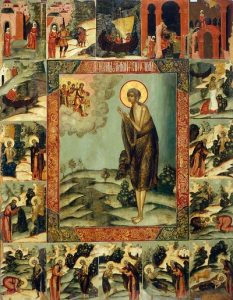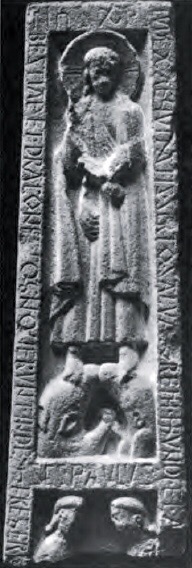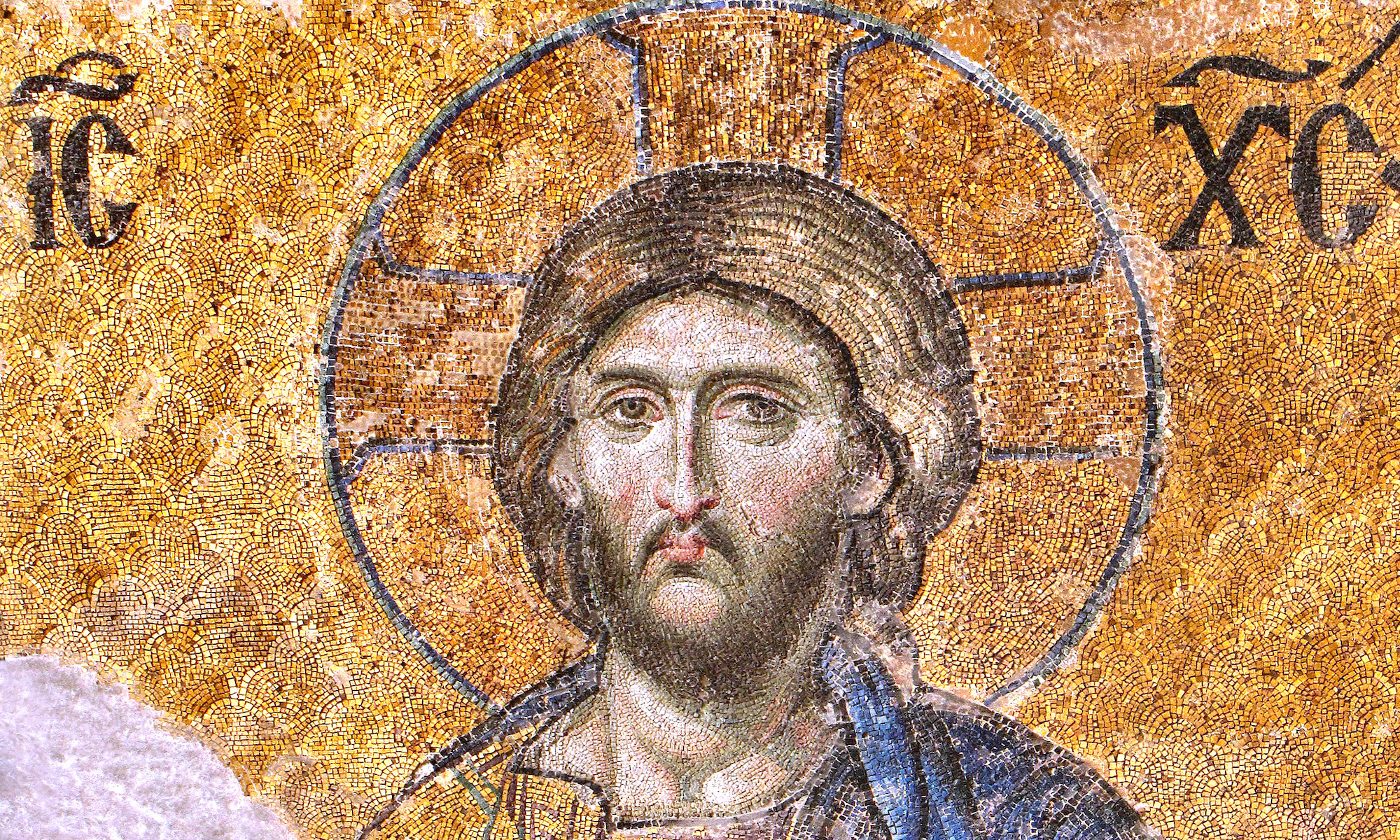O Death, where is your sting? O Hell, where is your victory? Christ is risen, and you are overthrown. Christ is risen, and the demons are fallen. Christ is risen, and the angels rejoice. Christ is risen, and life reigns. Christ is risen, and not one dead remains in the grave. For Christ, being risen from the dead, is become the first fruits of those who have fallen asleep. To Him be glory and dominion unto ages of ages. Amen.
Service Reminder: Presanctified and Great Canon This Week
- 6:30pm Wed, Mar 29:
- Presanctified Liturgy
- 6:30pm Thu, Mar 30:
- Great Canon of St. Andrew of Crete (complete) with the Life of St. Mary of Egypt

Addressing the Cross
In catechumen class today my attention was drawn to “The Dream of the Rood“, one of the oldest extant works of Old English literature which I’m sure I’ve read about at some point in my study of English literature, but which I’d never actually read. So, when I found a modern English translation of it online, I read it, and was struck by both its beauty and by the way it addresses the cross directly, just as does our own “Akathist to the Spiritual Ladder, the Precious Cross“.
 In fact, while I haven’t thoroughly analyzed the theology of “The Dream of the Rood”, I actually found I preferred it to “our” akathist (I put “our” in quotation marks here because, given the very pre-schism date of “The Dream of the Rood”, it potentially has just as much claim to being part of our tradition as the Akathist does), mainly because where the Akathist stays true to form and calls upon the cross to rejoice (as is common to the refrain in all akathists), “The Dream of the Rood” portrays the cross as having a much more nuanced and conflicted view of its having become the means of our Lord’s victory over sin and death on our behalf:
In fact, while I haven’t thoroughly analyzed the theology of “The Dream of the Rood”, I actually found I preferred it to “our” akathist (I put “our” in quotation marks here because, given the very pre-schism date of “The Dream of the Rood”, it potentially has just as much claim to being part of our tradition as the Akathist does), mainly because where the Akathist stays true to form and calls upon the cross to rejoice (as is common to the refrain in all akathists), “The Dream of the Rood” portrays the cross as having a much more nuanced and conflicted view of its having become the means of our Lord’s victory over sin and death on our behalf:
Then I saw mankind’s Lord come with great courage when he would mount on me. Then dared I not against the Lord’s word bend or break, when I saw earth’s fields shake. All fiends I could have felled, but I stood fast.
The common theme here of addressing an inanimate object (as Paul does when he exclaims, “O grave, where is your victory?”) ties into what we noted in today’s sermon, in that, as followers of Christ, we can no longer consider the cross apart from what our Lord accomplished on it – and it is this that transforms it, for us, from a terrible instrument of torture into the very means of our salvation. It is as we take up our own cross daily and follow Christ that we are working out our own salvation in fear and trembling, and it is this inextricable association between the cross and what Christ accomplished by it that elicits our response to honour it and even to embrace it as the ultimate symbol of our Lord’s (and, by association, of our own) ultimate triumph over sin and death.
As the Akathist says,
Seeing the strange wonder, let us live our life as strangers, lifting our minds up to heaven, for this reason was Christ affixed to the Cross, and suffered in the flesh having willed to draw to the heights them that cry to it: Alleluia!
Christ is born!
We are all on a journey: an ancient journey, full of perils.
We travel together for safety, and our companions, chosen or haphazard, largely determine our experience of our travel,
Except for two unalterable truths…
Everything changes, nothing stays the same.
No one can ever go back the way they came.
And, like all journeys, the ultimate significance of our endeavours depends largely upon our intended destination
And on our intended purpose, once we get there:
Are we some rough beast, slouching towards Bethlehem to be born?
Or are we a vulnerable young mother,
Voluntarily submitting ourselves to the pains of travel and the labour of childbirth
To do our part to help provide a body for and to bring into the world the Christ-child?
And, if the latter, our journey does not end at Bethlehem.
For, once we have so participated in His embodiment, we have chosen, and been chosen, to go further:
To go as far as needed, to continue the journey as long as we are needed
To protect and nurture and bring up Him who has chosen to be born of us
In the humiliation of the stable:
the helpless saviour of the world, the Prince of Peace.
Christ is born!
May we, with our souls and our bodies – our entire beings, throughout our entire journey –
Glorify Him.
Christmas and Theophany Services
Christmas is coming… and so is Theophany! Since our custom is for the priest to take a bit of “time off” after Christmas (consisting largely of not doing Wednesday services), and Christmas is slightly different, here’s the list of services coming up:
- Dec 24, 6:00pm: Christmas Eve Vigil (usually a bit over two hours long)
- Dec 25, 9:00am: Christmas Liturgy (starting at 9am sharp, no Hours; usually about an hour-and-a-half, followed by a Christmas feast for any who can stay)
- Dec 28: NO Compline!
- Dec 31, 6:00pm: Great Vespers (as usual)
- Jan 1, 9:00am: Hours and Liturgy of St. Basil the Great
- Jan 4: NO Compline!
- Jan 5, 6:30pm: Vesperal Liturgy and Great Blessing of Waters (indoor) for Theophany
- Jan 7, 6:00pm: Great Vespers
- Jan 8, 9:00am: Hours and Liturgy, followed by the Great Blessing of the Waters (outdoor)
And, speaking of the Great Blessing of the Waters, here’s a short piece that Mike McCardell did when he happened to run across us blessing the waters at Kits Beach in 2012: https://youtu.be/7TYH6voSQb0
Finally, calendars are here! Many thanks to Zane, of Ancient Burials, for providing them for us (in a wonderfully timely manner) this year!
